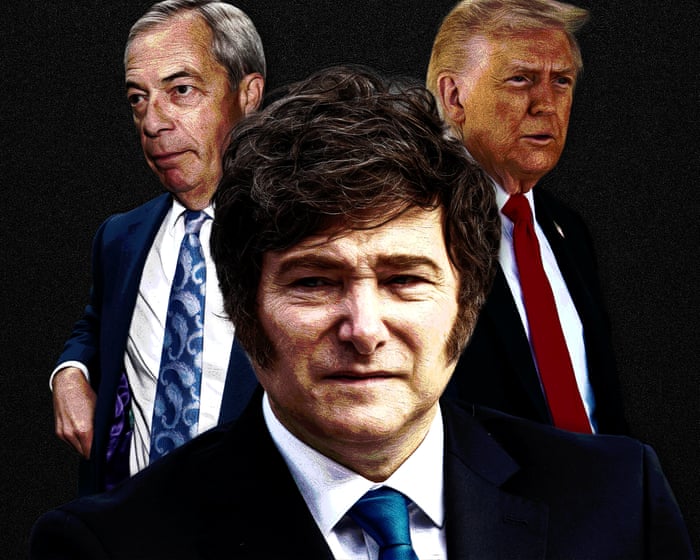«Είμαι τυχερή που δεν είμαι δικηγόρος ή λογίστρια ή κάτι επαγγελματίας», λέει η Peach Martine, μια 23χρονη μουσικός της οποίας η ροή στο Instagram είναι ένα ζωηρό μείγμα από έγχρωμα ενδύματα από τεχνητή γούνα και μελεπάρντ. «Μερικές φορές οι άνθρωποι δυσκολεύονται να πάρουν το όνομά μου στα σοβαρά». Αρχικά, υπάρχουν τα αστεια σχόλια («Η αδερφή σου λέγεται Παπάγια;») και μετά η υπόθεση ότι πρέπει να είναι «λίγο ανόητη». Και μην της πείτε να πάει στο Starbucks. «Πάντα γράφουν Paige στο ποτήρι!»
Ωστόσο, η Martine δεν θα ονειρευόταν ποτέ να αλλάξει το μικρό της όνομα. Της αρέσει που έχει ένα ασυνήθιστο όνομα. Ως τραγουδίστρια, λέει ότι την έχει βοηθήσει να ξεχωρίζει. Αν είχε παιδιά, θα σκεφτόταν επίσης να τους δώσει μοναδικά ονόματα.
Η Martine δεν είναι μόνη. Σύμφωνα με μελέτη που ανέλυσε 325 εκατομμύρια Αμερικανούς βρέφη που γεννήθηκαν μεταξύ 1880 και 2007, η χρήση κοινών ονομάτων για μωρά έχει μειωθεί σταθερά από το 1983, με την πιο σημαντική μετατόπιση να σημειώνεται στη δεκαετία του 1990. Το 2023, η Εθνική Στατιστική Υπηρεσία του Ηνωμένου Βασιλείου ανέφερε ότι κάθε χρόνο καταγράφονταν 64.560 μοναδικά ονόματα — διπλάσιος αριθμός από το 1999. Φέτος, ο αμερικανικός ιστότοπος γονικής μέριμνας BabyCenter σημείωσε ότι τα ονόματα Juniper, Malachi και Emersyn μπήκαν για πρώτη φορά στα top 100 ονόματα. Στην Ιαπωνία, η τάση προς τα μοναδικά ονόματα είχε γίνει τόσο διαδεδομένη που η κυβέρνηση πρόσφατα περιόρισε τα «kirakira» (λαμπερά ή γυαλιστερά) ονόματα, αφού οι γονείς αντιμετώπισαν κριτική για το ότι ονόμαζαν τα παιδιά τους με βάση μάρκες ή διάσημους χαρακτήρες όπως ο Pikachu των Pokémon, Naiki (Nike), Pū (Ο Γουίνι το Αρκουδάκι), ή άλλα όπως Akuma (Διάβολος), που έγιναν πρωτοσέλιδα.
Τι τροφοδοτεί αυτή την τάση; Μερικοί την αποδίδουν στην κουλτούρα των διασημοτήτων. Η Apple, η κόρη της Gwyneth Paltrow και του Chris Martin, πρωταγωνιστεί σε μια καμπάνια μόδας της Gap με τη μητέρα της. Η Pixie Geldof, κόρη του Bob Geldof και της Paula Yates, και η Heavenly Hiraani Tiger Lily, κόρη της Yates με τον Michael Hutchence (που αργότερα υιοθετήθηκε από τον Geldof), είναι διασημότητες από μόνες τους. Υπάρχουν επίσης τα παιδιά της Rihanna και του A$AP Rocky: Riot, RZA και Rocki· και η κόρη της ράπερ Cardi B, Kulture. Η μοντέλο Nara Smith ανακοίνωσε πρόσφατα στους ακόλουθούς της στο Instagram ότι το μωρό Fawnie Golden έχει ενταχθεί στην οικογένειά της, που περιλαμβάνει ήδη τα Rumble Honey, Whimsy Lou και Slim Easy. Η YouTuber Trisha Paytas γέννησε τον Aquaman τον Ιούλιο, που προστέθηκε στα άλλα της παιδιά, Malibu Barbie και Elvis. Και ποιος θα μπορούσε να ξεχάσει το πρώτο παιδί του Elon Musk και της τραγουδίστριας Grimes, X Æ A-12;
Ο Kevin Schürer, ερευνητής στην Cambridge Group for the History of Population and Social Structure, λέει: «Τα τελευταία 20 και πλέον χρόνια, έχουμε δει ότι όλα επιτρέπονται στην ονοματοδοσία των παιδιών. Εμφανίζονται πιο ατομικιστικά ονόματα, χρησιμοποιώντας παλιά ονόματα με νέα ορθογραφία ή αντλώντας από την ποπ κουλτούρα. Απομακρυνόμαστε από ένα τυπικό σύνολο ονομάτων». Η παράδοση της ονοματοδοσίας των παιδιών με βάση τους νονούς ή τα μέλη της οικογένειας μειώθηκε από τον 18ο αιώνα και μετά στο Ηνωμένο Βασίλειο, καθώς οι πληθυσμοί έγιναν πιο κινητικοί κατά τη Βιομηχανική Επανάσταση και οι γονείς αισθάνθηκαν λιγότερο δεσμευμένοι από τα έθιμα και τις απόψεις της εκτεταμένης οικογένειας. Τώρα, σημειώνει ο Schürer, οι γονείς επιλέγουν «ονόματα που τους αρέσουν επειδή εμφανίζονται στα κοινωνικά δίκτυα, την τηλεόραση και τους ιστότοπους των μέσων ενημέρωσης».
Ένα όνομα έχει σημασία. Έρευνες υποδηλώνουν ότι μπορεί να επηρεάσει με ποιον βγαίνουμε, πόσο καλά αποδίδουν οι φοιτητές στο πανεπιστήμιο (ανακαλύφθηκε ότι όσοι είχαν επώνυμα αργότερα στο αλφάβητο έλαβαν χαμηλότερους βαθμούς) και στην Κίνα, έχει συσχετιστεί με την πιθανότητα διάπραξης εγκλήματος. Στην πραγματικότητα, τα ονόματα είναι τόσο σημαντικά που έχει αναπτυχθεί μια βιομηχανία γύρω από την επιλογή τους. Η Taylor Humphrey, που ίδρυσε την εταιρεία της What's in a Baby Name το 2015, χρεώνει πάνω από 1.500 δολάρια για μια λίστα πιθανών ονομάτων. Για 30.000 δολάρια, προσφέρει... Η έννοια του «branding ονόματος μωρού» κερδίζει έδαφος. Ιστότοποι όπως το Nameberry, My Name for Life και Namerology προσφέρουν καθοδήγηση στους γονείς για το τι πρέπει και τι δεν πρέπει να κάνουν κατά την ονοματοδοσία. Στο TikTok, η influencer Emily Kim προβλέπει πώς μπορεί να ονομάσουν τα παιδιά τους οι διασημότητες και οι influencers και επίσης χρεώνει για τις συμβουλές της σχετικά με την ονοματοδοσία.
Η Duana Taha, συγγραφέας του «The Name Therapist: How Growing Up With My Odd Name Taught Me Everything You Need to Know About Yours», πιστεύει ότι ένα όνομα αποκαλύπτει περισσότερα για τους ανθρώπους που το επέλεξαν παρά για το άτομο που το φέρει. Για παράδειγμα, εξηγεί: «Αν ονομάζεσαι Σάρα, αυτό είναι ένα αρκετά παραδοσιακό και εύκολα κατανοητό όνομα. Είναι βιβλικό αλλά και λογοτεχνικό, απλό χωρίς πολλά φουντώματα. Οι γονείς που επιλέγουν τη Σάρα μπορεί να εκτιμούν διαφορετικά πράγματα σε σύγκριση με εκείνους που επιλέγουν κάτι πιο φανταχτερό, όπως η Σεραφίνα».
Η Taha προτείνει ότι ένα παιδί με ασυνήθιστο όνομα, όπως η Σεραφίνα, μπορεί να μεγαλώσει πιο σίγουρο. «Λαμβάνεις ήδη περισσότερη προσοχή που δεν επέλεξες απαραίτητα», λέει. «Ως ενήλικας, το έχω αποδεχτεί, αλλά αυτό συμβαίνει σε τριχρονα και τετράχρονα. Νομίζω ότι συνηθίζουν πολύ να υπερασπίζονται τον εαυτό τους και να συνειδητοποιούν ότι υπάρχει κάτι που τους ξεχωρίζει».
Μια μελέτη του 2020 στο Strategic Management Journal, που ανέλυσε τα ονόματα CEOs από 1.172 δημόσιες εταιρείες σε διάστημα 19 ετών, βρήκε ότι οι CEOs με ασυνήθιστα ονόματα τείνουν να βλέπουν τον εαυτό τους ως διαφορετικό από τους συνομηλίκους τους και είναι πιο πιθανό να ακολουθούν στρατηγικές που αποκλίνουν από τα βιομηχανικά πρότυπα.
Ο David Figlio, καθηγητής οικονομικών στο Πανεπιστήμιο του Rochester στη Νέα Υόρκη, μελέτησε στις αρχές της δεκαετίας του 2000 πώς τα ονόματα μπορούν να επηρεάσουν τα αποτελέσματα για τα σχολικά παιδιά. Σημειώνει: «Οι Εβραίοι συχνά λένε ότι το όνομά σου είναι το πρώτο σου δώρο». Η έρευνά του αποκάλυψε ότι Αμερικανοί αγόρια με ονόματα που ακούγονται πιο θηλυκό, όπως Ashley ή Courtney, ήταν πιο πιθανό να παρουσιάσουν απρεπή συμπεριφορά κατά την είσοδό τους στην έκτη δημοτικού. Εν τω μεταξύ, τα κορίτσια με αρσενικά ονόματα, όπως Morgan και Taylor, ήταν πιο επιρρεπή να ακολουθήσουν προχωρημένες σπουδές στις επιστήμες και τα μαθηματικά σε σύγκριση με τα αδέρφια τους με πιο θηλυκότητα ονόματα όπως Emma ή Isabella.
Ο Figlio εξηγεί: «Από τις πρώτες στιγμές της ζωής τους, η Isabella και η Taylor λάμβαναν διαφορετικά σήματα από τους ανθρώπους στην κοινωνία που δεν είχαν ιδέα ότι το έκαναν. Οι γονείς απορρόφησαν επίσης αυτά τα σήματα και μπορεί να μην είχαν εκπλαγεί όταν η Taylor ήθελε να παίξει με φορτηγά και η Isabella ήθελε να παίξει με κούκλες».
Προσθέτει ότι ακόμα και σήμερα, μια σημαντική πλειοψηφία ανθρώπων και στις δύο πλευρές του Ατλαντικού δίνουν ακόμα στα παιδιά τους ονόματα με φυλετική χροιά. Ωστόσο, η άνοδος των μοναδικών ονομάτων οφείλεται εν μέρει στο ότι περισσότερα κορίτσια λαμβάνουν ονόματα που παραδοσιακά συνδέονται με αγόρια, όπως Taylor, χάρη εν μέρει σε ορισμένες διασημότητες. Οι γονείς είναι συχνά πιο πρόθυμοι να επιλέξουν μη συμβατικά ονόματα για τις κόρες τους ενώ παραμένουν σε παραδοσιακά για τους γιους τους. Ωστόσο, ο Figlio επισημαίνει: «Έχουμε ονόματα που είναι σχετικά νέα, όπως η Kehlani, που είναι φέτος στα top 100, και ξέρεις ότι είναι κορίτσι. Έχουμε συνηθίσει να συσχετίζουμε ορισμένα γλωσσικά χαρακτηριστικά με την αρρενωπότητα και τη θηλυκότητα, ακόμα κι αν υπάρχει μια αυξανόμενη επιθυμία για μοναδικότητα τόσο στις ΗΠΑ όσο και στο ΗΒ».
Μπορεί ένα όνομα να σε καθορίσει για τη ζωή; Το 1985, ο Βέλγος ψυχολόγος Jozef Nuttin ανακάλυψε ότι οι άνθρωποι τείνουν να προτιμούν γράμματα που εμφανίζονται στο μικρό ή στο επώνυμό τους. Αυτό το «φαινόμενο γράμματος-ονόματος» συνδέεται με τη «σιωπηρή εγωτιστική προκατάληψη», μια ασυνείδητη προτίμηση για πράγματα που σχετίζονται με τον εαυτό. Οδηγεί στον «ονομαστικό ντετερμινισμό», έναν όρο που έγινε δημοφιλής από μια στήλη που αναδεικνύει περιπτώσεις όπως η Sarah Blizzard, η παρουσιάστρια του καιρού, η Ellie Cook, η ζαχαροπλάστρια, και ο David Limb, ο ορθοπεδικός χειρουργός. Το 1994, το New Scientist εξέτασε ένα φαινόμενο που μπορεί να εξηγήσει γιατί η Sara Blizzard — μια παρουσιάστρια καιρού του BBC — έλκυσε την καριέρα της, ο Chris Moneymaker έγινε διάσημος παίκτης πόκερ, η Ellie Cook εργάζεται ως ζαχαροπλάστρια, και ο κ. David Limb είναι ορθοπεδικός χειρουργός.
Ο David Limb και οι γιοι του, Richard και Christopher, που επίσης εισήλθαν στον ιατρικό κλάδο, δημοσίευσαν μια σύντομη εργασία το 2015 πάνω σε αυτό το θέμα αφού άκουγαν συχνά σχόλια για το επώνυμό τους στη δουλειά. Ανέλυσαν 313.445 εγγραφές στο ιατρικό μητρώο του Ηνωμένου Βασιλείου και βρήκαν ότι ονόματα που σχετίζονται με την ιατρική (όπως Doctor, Nurse και Ward) είχαν μια μέση συχνότητα 1 στα 149. Για ονόματα συνδεδεμένα με συγκεκριμένες ιατρικές ειδικότητες, η συχνότητα ήταν 1 στα 486. Για παράδειγμα, η ουρολογία περιλάμβανε επώνυμα όπως Burns, Cox, Dick, Koch, Balluch, Ball και Waterfall, ενώ η μαιευτική και γυναικολογία περιελάμβανε τα New, Bourne και Child. Η εργασία σημείωσε ότι ο Δρ. Pain εμφανιζόταν πιο συχνά στη γενική χειρουργική, προσθέτοντας, «αλλά ευτυχώς όχι ο Δρ. Handslip».
Στο ξενοδοχείο Ettington Park Hotel στο Stratford-upon-Avon, όπου εργάζεται η Ellie Cook, οι συνάδελφοί της και οι πελάτες συχνά επισημαίνουν τη σύνδεση μεταξύ του ονόματός της και του επαγγέλματός της. Η ομάδα της ρεσεψιόν αστειεύεται ακόμη με τους επισκέπτες ότι το φαγητό είναι ιδιαίτερα καλό γιατί γεννήθηκε για αυτόν τον ρόλο. «Συνήθιζα να διδάσκω στη Le Cordon Bleu, και οι μαθητές το λάτρευαν», λέει.
Η Cook μεγάλωσε στο Solihull στα Midlands, όπου έψην



